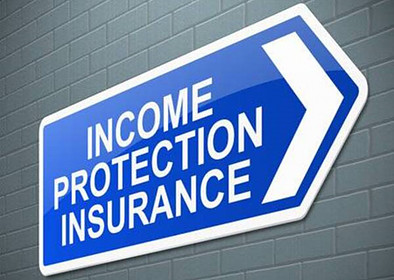Generally in life, as humans, we cannot tell what will happen in the next minute. Countless things may go wrong or not according to what we have planned for our lives but when any of these happen, it should not have a severe, negative or lasting impact on our lives.
This is what insurance tends to offer us; preparing for unknown circumstances and risks that may want to derail or destabilize us.
A crucial part of life for most people is their jobs or work. It is where you get the income that you need to take care of yourself as well as your family.
Have you thought about what will happen if for any reason; accidents or illness, you become incapacitated to work? What will happen to you and what will happen to your loved ones?
There are many types of insurance policies but one type that helps to protect you in a case of incapacitation is income protection insurance.
What is Income Protection Insurance?
This is sometimes called permanent health insurance. It is a form of long-term insurance that is designed to help an individual who may not be able to work either because they are ill or they are injured.
The policy ensures that the individual continues to receive a regular income until a time when they can return to work or when they retire.
The amount that will be paid will not be up to what you were earning before the injury or sickness. However, you will receive around two-thirds or around 75% of your earnings before tax is deducted.
The reason for this is that part of the money will be deducted for state benefits that you are allowed to claim. Also, whatever income you get during this period is tax-free. You can read further on this here.
Terms Associated with Income Protection Insurance
There are terms used to describe the different periods of payment in income protection insurance. They are:
 The Waiting Period
The Waiting Period
This is the period that a policyholder has to wait before they can begin to claim the income protection payments. It is also known as the deferred period. This is usually a minimum of about two to four weeks but can last up to about two years.
This may be as a result of the fact that you may not need the funds straight away. Your employer may give you sick pay or you can be in a position where you can claim statutory sick pay after stopping work. This can last for several weeks.
Generally, the longer the period of waiting, the cheaper the policy will be. In choosing a waiting period, you have to consider how much you will be able to get in annual and sick leave, savings as well as emergency funds.
The Benefit Period
This is the length of time the monthly income payments will last. Most policies typically offer this for a period of two to five years or up to a specific age (usually retirement age) of 65. It can also last until the individual concerned can return to work.
The length of the benefit period determines how expensive the policy is. The longer it is, the more expensive but the greater the protection and vice versa.
What to Consider before taking out Income Protection Insurance
There are things you should put into consideration before taking out an income protection policy. This will help you to determine if you need it or not. Important questions you may need to answer include:
- Do you already have protection via your employer? You can confirm this from your employment details (contract or employment details) or directly from your employer.
- Do you have any form of savings that you can use instead of insurance?
- Do you currently have some kind of illness insurance that covers you which may be combined with other insurance policies that you might have or with your mortgage?
If your answers to the above are yes, you may not need to take out an income protection policy. If your answers to the below questions are yes or if you are a business owner or self-employed, you are not likely to have a sick or annual leave so you probably will need the insurance.
- Do you have debts to pay and which needs to be fulfilled despite you not working?
- Are there dependents who rely on your earnings?
Other things you might need to consider are the kind of disability you have, whether you have financial support from family as well as friends and whether you have a means of paying for your medical expenses such as private health insurance.
You can draw out a budget of how much you will need every month and this will help you to put things in perspective.
You may also check out and compare the different kinds of illness insurance such as critical illness insurance which is a cheaper option available to see if income protection is the best for you or if you can find a more suitable one.
 Buying Income Protection
Buying Income Protection
You can purchase an income protection policy from either an independent financial adviser or directly from the insurance company.
When buying from an insurance company, you may need to shop around to see who will offer you the best rates. You are not likely to be able to buy the policy online as the company will need to assess you but you can apply for a quote and speak to an adviser.
There are two types of policies that you may be able to get.
These are:-
The Indemnity Value Policy
This policy amount is a percentage of your salary by the time you make a claim. If your salary has decreased since then, you will get smaller monthly payments. This kind of policy is usually cheaper and may be suitable for persons with stable income.
Agreed Value Policy
The policy amount with which you are insured is a percentage of a pre-determined amount at the point of signing up for the policy. Agreed value policies are generally more expensive but suitable for people with a changing income.
You can visit https://low.ie/income-protection to learn more about all of these.
Conclusion
Buying an Income Protection Insurance policy has a lot of benefits. You can be certain that even when you are incapacitated, your needs and those of your dependents can be taken care of.
Before signing up for it, however, ensure that you get advice and that you have considered all the necessary factors involved.



